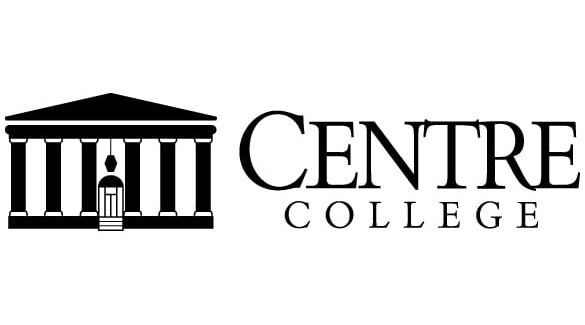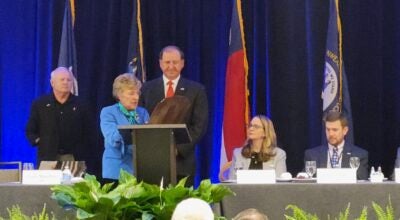Centre working to connect dots to ensure safe new year ahead
Published 5:28 pm Monday, May 25, 2020
Centre College’s chief financial and communications officers said the school is now working hard to get ready for the fall, “in every way you can imagine,” CFO Brian Hutzley said, from everything to extending the fall registration deadline to continuing ongoing construction projects. Although COVID-19 resulted in unprecedented changes for educational institutions, the school has had to carry on, continuing to work through logistics for its upcoming year.
Hutzley, along with Michael Strysick, who heads up the communications department, recently gave an update of what the college is expecting to happen with its next class, and how it expects to get there.
Changes that keep coming
Ten different committees were developed out of a task force, Strysick and Hutzley said, to work through the pandemic and then focus on the fall semester. It’s been exactly two months since the college found itself in this “digital experience” after sending almost all students home, except for about 100 who were spread out within a larger residence hall.
Summer camps that were to run through June 30 have all been canceled. They will continue to look for guidance from Gov. Andy Beshear to see if it will be possible to reschedule them.
Centre is also to host the Governor’s Scholars Program, which would be about 31-students strong this year, but how this will be handled hasn’t been decided. They’ve heard the Governor’s School for Entrepreneurs will take place in a virtual setting. The GSP director continues to work with campuses to see how this might work.
Strysick said, “Gov. Andy Beshear is a GSP alum. I think he will work hard ….” to make sure the program is enacted in some way.
Strysick and Hutzley both say the college may be in a transition period, but they feel they have time on their side right now. Several different possibilities have been discussed, as the near future and what it holds for social distancing is still unknown.
There is a chance the fall will be all online teaching. Centre will be doing a block schedule, instead of four courses taken at once spread over 13 weeks as it normally does. Fall classes will be divided into two blocks, with two courses, each lasting seven weeks.
Teams have been using formulas to determine room sizes to find out where in-person classes can take place, judging by square footage to decide locations where 10 students can spread out safely, along with one faculty member. Classes could be divided into two halves, with each half meeting in person on designated days.
They say since high-school seniors have had a crazy year, the new block plan will help them transition into a college setting.
“Our continuing students have had a crazy spring, so it will help them, too. And take some of the burden off of the faculty. It’s a win-win situation,” Strysick said.
Centre has had a lot of decisions to make, according to pay, benefits and job furloughs, Hutzley said. “We’re taking advantage of the time to think this thing through to make this thing happen …” he said. Safety measures for the classrooms and common spaces must all be thought out, including what the new normal could mean for athletic events.
The school must also figure out in-person safety precautions for dining; it serves almost 1,400 student meals; there may be a possibility of having to create a second dining facility.
Strysick said weekly calls with emergency management continue, as well as close relationships that have been built with the local hospital. “That will really help us as we’re planning for the fall, we have access to a wonderful healthcare facility (in Ephraim McDowell Regional Medical Center) for testing, and the PPE support in this community, it really does take a village. And we’re glad that our village isn’t limited to the confines of the campus.”
Hutzley said the local and state health departments have been “incredible, not only looking backward, but the info they provide and the plans they’ll help us with, making sure students are healthy and safe.” They say the same about other county and city agencies, as well.
The school has been purchasing protective gear and installing shields to place in front of office workers who deal with the public.
Some of the “new normal” impacts may stick, the two men say, like the Zoom meeting platforms. Strysick said one of the great things about virtual meetings is being able to include multiple people at once, like parents who cannot travel to go on a tour or hold in-person discussions with the admission or financial aid department. “Now they can, and they can all be on one call, in one meeting, talking with the students and parents.”
They say it’s all about finding new and creative ways of communicating and keeping in touch with potential and current students, and their parents. They do hope there will be a way to open up limited campus tours and visits, while observing social distancing and wearing PPE.
Feeling fortunate
Typically, May 1 is the deadline for students to make a deposit for their college of choice.
Strysick and Hutzley said Centre, with probably about 500 other institutions, changed that deadline to June 1.
They’ve found that a lot of students and their families are having a difficult time making fall college decisions in the current climate, for a number of reasons. Centre wanted to give them more time to do that.
“We’re on track for domestic goals (of students), but will fall a little bit behind where international students are concerned, given everything that’s going on,” Strysick said.
“One stat that doesn’t surprise me — although it will be hard to judge what that’s going to mean come fall — but students are wanting to stay closer to home now,” Hutzley said, based on a recent survey taken. “And we’re seeing that in terms of our deposits.”
He said Centre will begin to see more clearly what its retention rate is like for this coming year in early June, when the registration process is over.
“Brian has a different job as CFO and treasurer to build a budget, with a lot of barriers. We can look at it historically and try to predict, but a lot of those measurements are out of the window, now,” due to the COVID-19 pandemic, Strysick said.
He said at the last board of trustees meeting, topic No. 1 was “making a real important decision to invest in getting through the pandemic. We’re a private college, not getting taxpayer dollars. Tuition is the biggest part of our budget.”
Strysick said the school made a draw from its endowment, “and hope we’ll continue to grow, take a little bit out of it every year to help with the operating budget, but hopefully less than it’s earning. Trustees made a one-time exception to take out more than normal, to help support families, all directed towards the students’ financial needs.”
He said the endowment was up to $340 million before the pandemic, an all-time high.
Strysick and Hutzley said the folks who are overseeing their funds are “investing wisely,” and that the school hasn’t been hit as hard as some other places, such as smaller schools that don’t have that larger endowment.
Centre also recently finished up its big capital campaign, exceeding its $200 million goal by $10 million. They attribute that to the generosity of donors.
“So, we’ve been fortunate,” Strysick said.
Still in the works
The new CentreWorks program will hopefully be in the works by early fall, they say. The program will allow members of the campus and others within the Danville/Boyle County community to collaborate to study and resolve problems, start new businesses and hone leadership.
The program will be located on the third floor of the Hub Frankel building, at the corner of Main and Third streets. An entrepreneurial bootcamp, sponsored by CentreWorks, will also be offered to incoming students, focusing on building resilient communities “in the face of current pandemic challenges,” Strysick said.
Also, Olin Hall is being renovated with an expansion to add a center for science and mathematics, funded by a $3 million gift from the Austin E. Knowlton Foundation.
In Crounse Hall, a new $1 million Learning Commons, a student access center, will be created. It will include moving the college’s Center for Teaching and Learning in proximity to the new commons.
Another $1 million has been budgeted to renovate and upgrade residence halls for first-year students.







